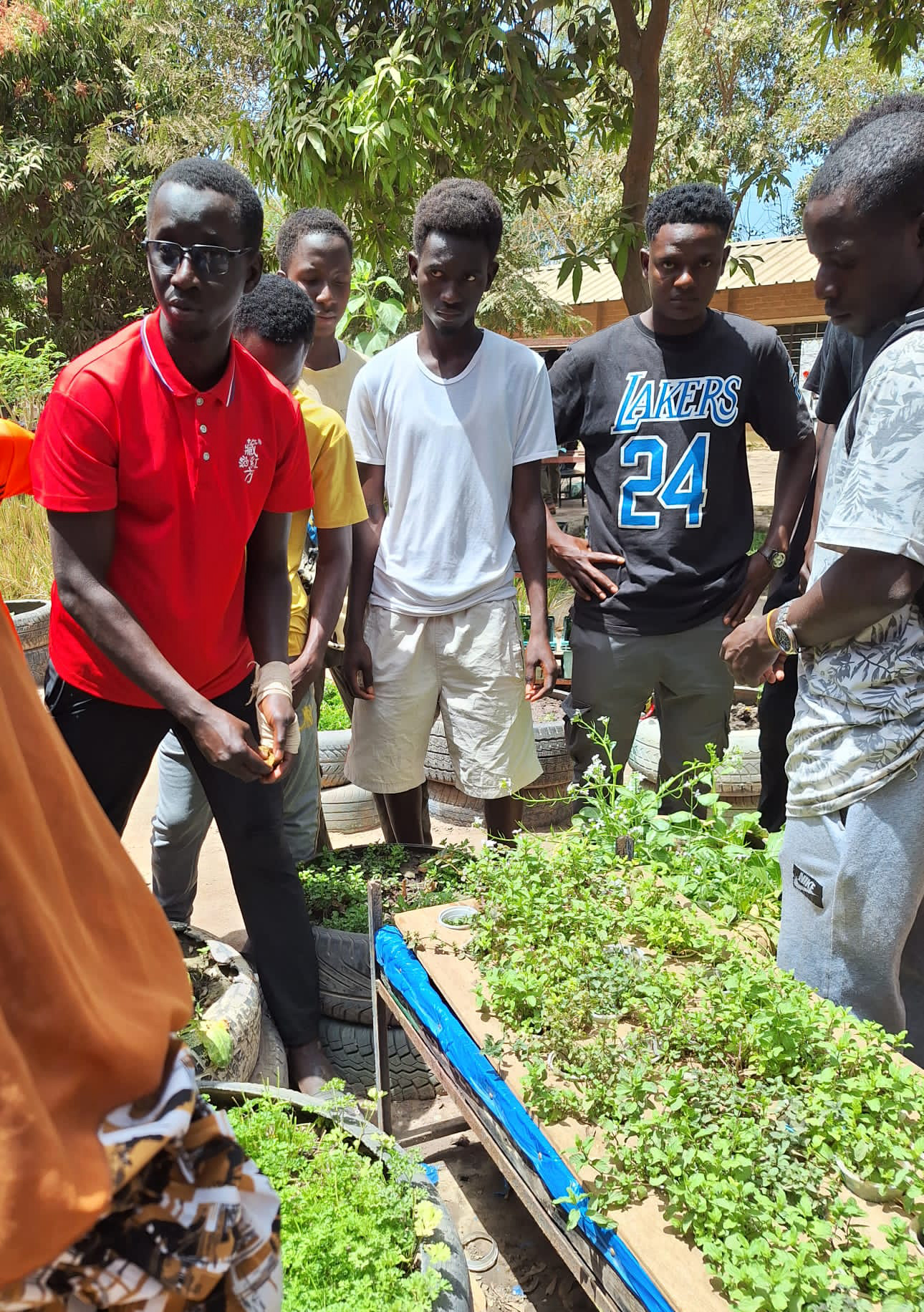Since February 2024, RUAS students from Industrial Product Design, Biology and Medical Laboratory Research, and Chemistry have been working, under the theme Circularity, on projects in semester 5, semester 6 (EAS R&D) and semester 7 (Minors). These projects focus on plant compounds from local plant species from The Gambia for their innovative applications.
From Game Design to Medicinal Discoveries: Student Projects Driving Innovation in The Gambia
Within the Circular Fieldlab, students are transforming local resources into practical, sustainable solutions. One engineering team developed a fully biodegradable version of the traditional African game Oware, using molded materials made from baobab peel and fiber—combining cultural heritage with circular design. Another team created the "Baobike”, a bicycle-powered device that efficiently separates the Baobab seeds from the pulp, offering a low-tech, high-impact solution for agricultural communities.
Meanwhile, students from Biology, Medical Laboratory Research, and Chemistry have been diving into the antimicrobial properties of Gambian medicinal plants. In collaboration with local partners, four RUAS student groups and one student group from the University of The Gambia are researching plant extracts from mango, moringa, and baobab, uncovering promising potential for future medical applications. These projects exemplify how offering students real-world issues for applied research can empower local communities and lead to impactful education.
Circular Fieldlab The Gambia – Erasmus+
Circular Fieldlab The Gambia is a collaborative initiative between My Farm, Gaye Njorro Skills Academy, The University of The Gambia, and Rotterdam University of Applied Sciences. It focuses on applied research, experiments for innovation and training in the fields of: applied bioscience on medicinal Gambian plant, circular and biobased materials and product design, as well as regenerative agriculture. By developing sustainable materials. products and production processes, the Fieldlab aims to combat poverty and promote local resilience.
The Fieldlab has been awarded a Eramus+ subsidy. This means over the next 2,5 years there is room for an educational partnership, the core objective is to foster learning, knowledge and skills development, and capacity building, equipping students and local communities with the knowledge to drive lasting change.
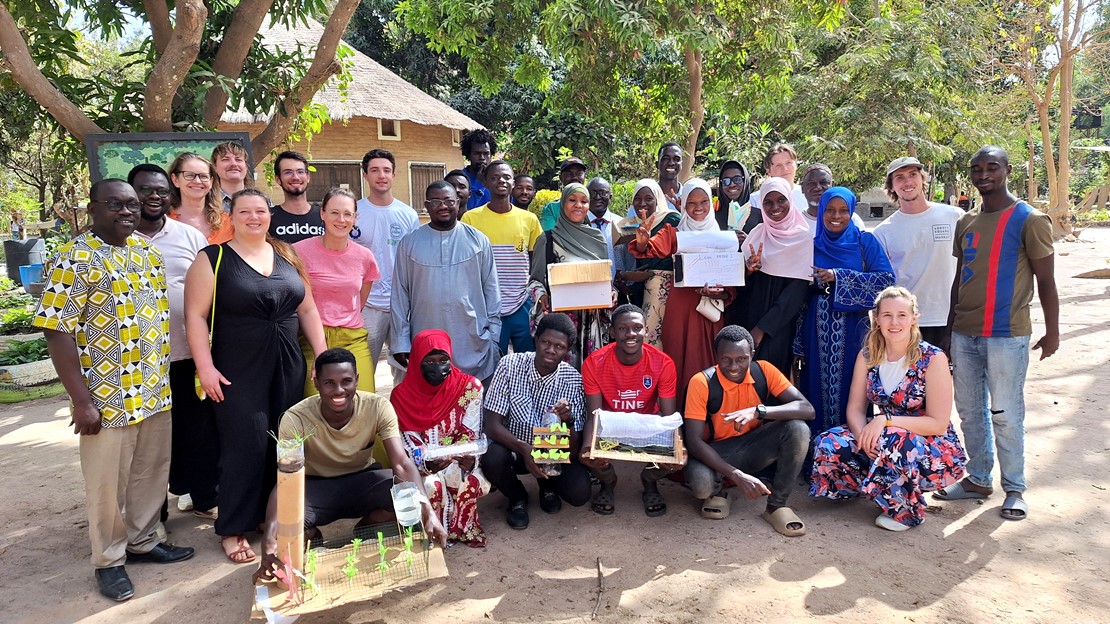
Workshop XXL: 84 Students in Action
Being creative and adaptable proved capacities, our lecturers also had to show during their trip. They organised two workshops to increase the creative thinking skills of the Gambian students from all three educational partners. What started with an expectation of 30 participants quickly grew into an inspiring event with 60 students for the first workshop and for the second workshop no less than 84 students!
In the first workshop students worked with several methods to enhance creative thinking on innovative, natural packaging solutions. The second workshop challenged students to design and build, on a small scale, a system for micro gardening using the design thinking method. The students' enthusiasm and ingenuity were impressive, and they proudly presented their final designs.
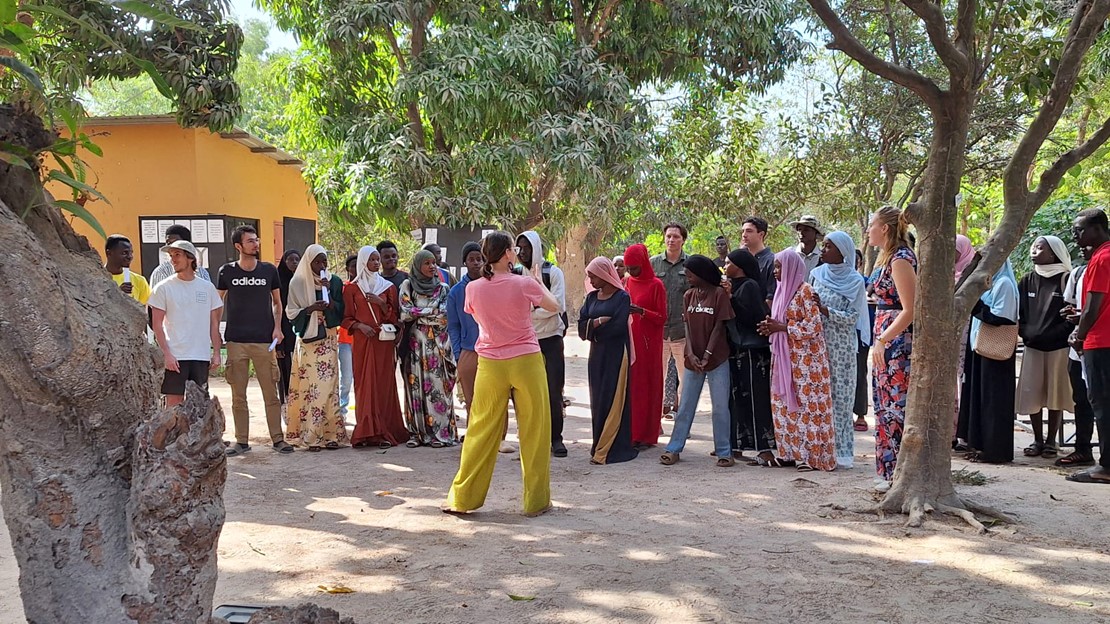
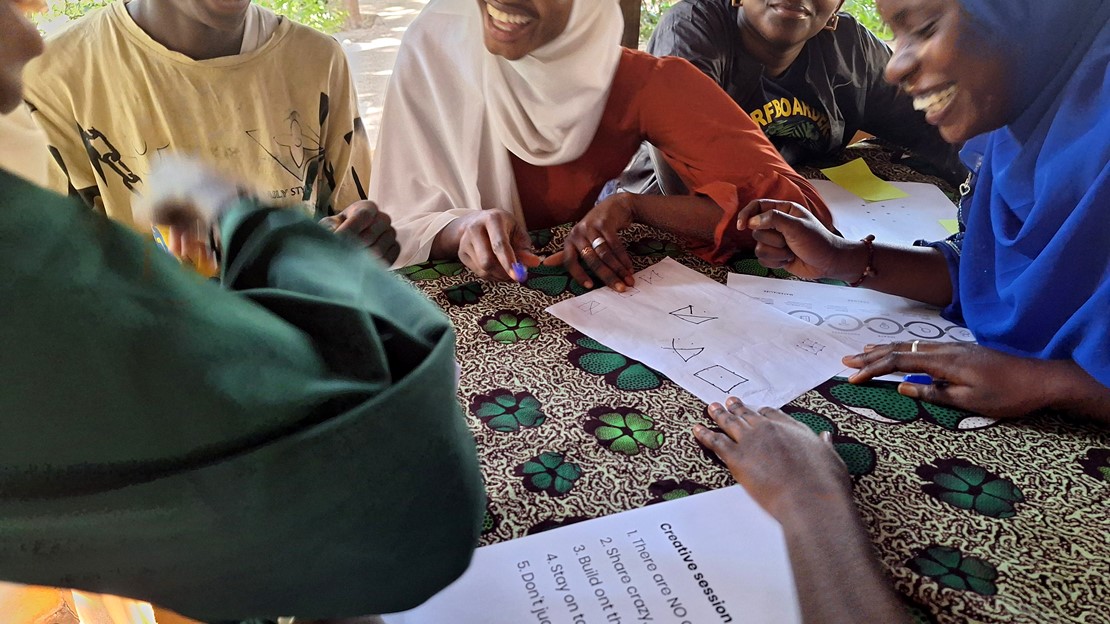
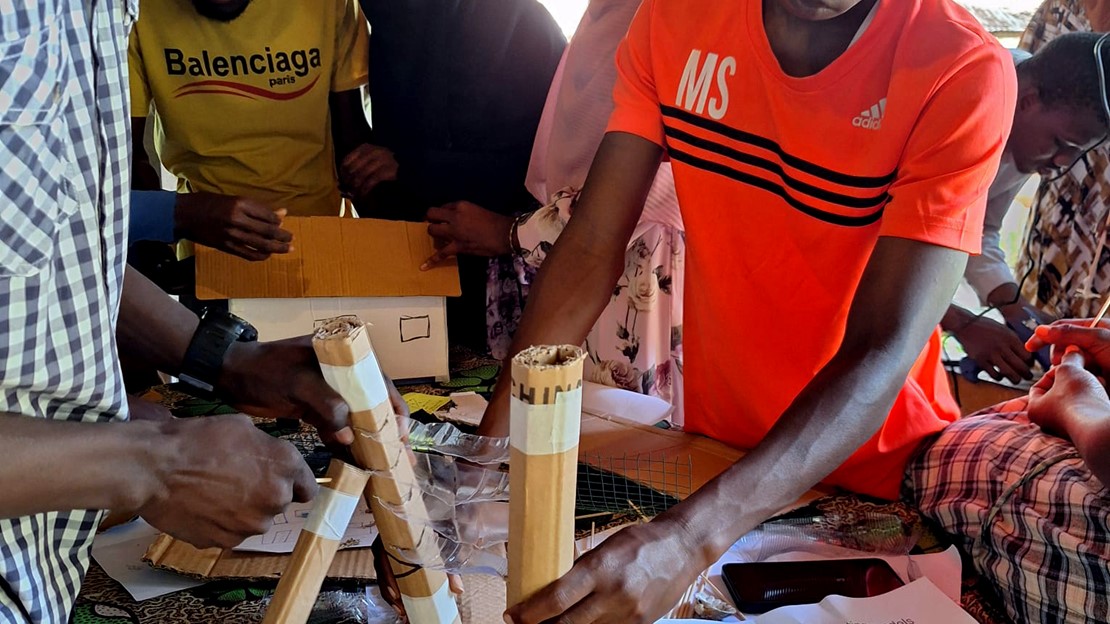
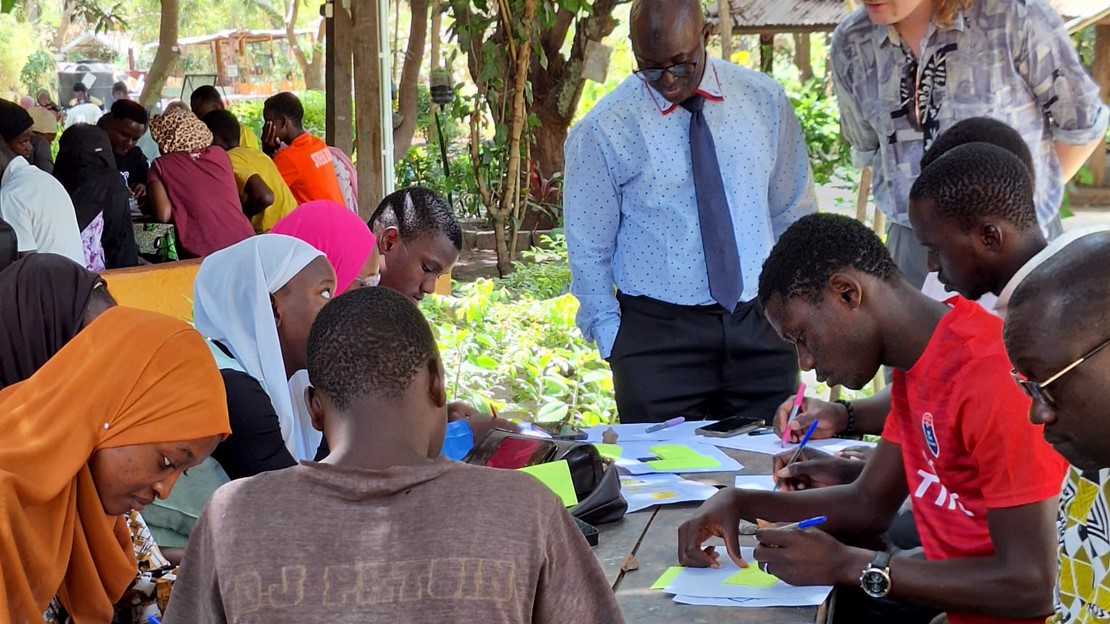
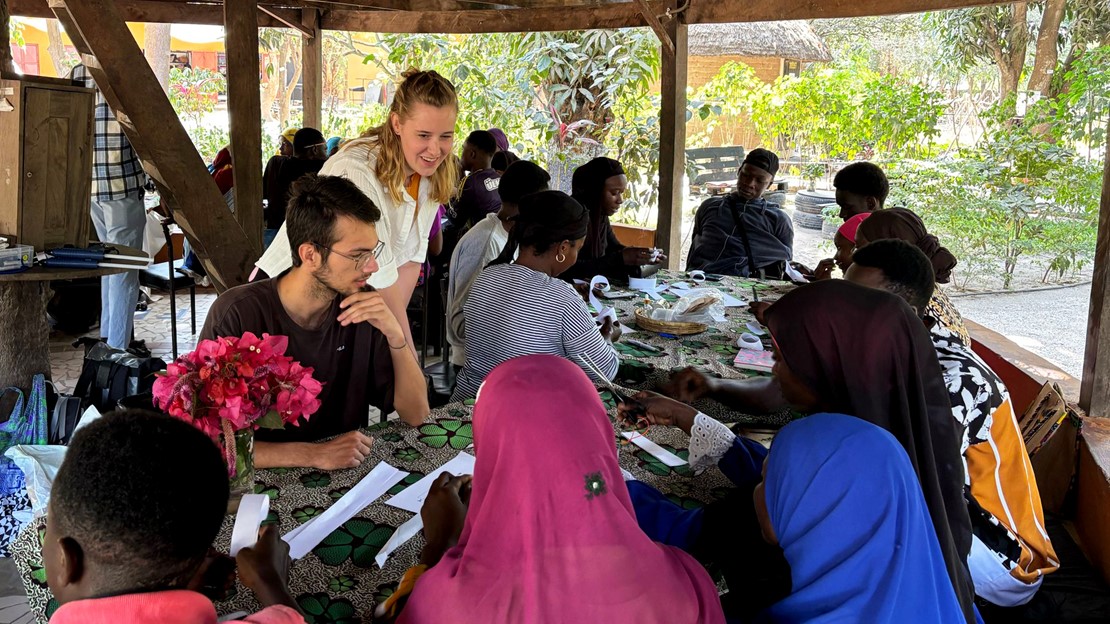
A Partnership with Impact
Strong collaborations are built on trust and personal connections. After a year of online meetings, the involved partners finally had the chance to meet face-to-face, after their first meeting in the Gambia in January the year before. This gave a significant boost to the collaboration and resulted in the signing of a Memorandum of Understanding (MoU) with four key educational partners:
- Rotterdam University of Applied Sciences
All partners bring specific and different knowledge and expertise to the field lab. By working on complex societal issues in a practical setting and doing small scale experiments within the context of the Circular Fieldlab, we aim to find solutions for authentic real life issues.
None of the partners have all the answers but together we can transcend the boundaries of our institutions and contribute a vital piece of the solution. The MoU not only strengthens the collaboration but also facilitates vital exchange of knowledge and expertise providing all our students with impactful education.
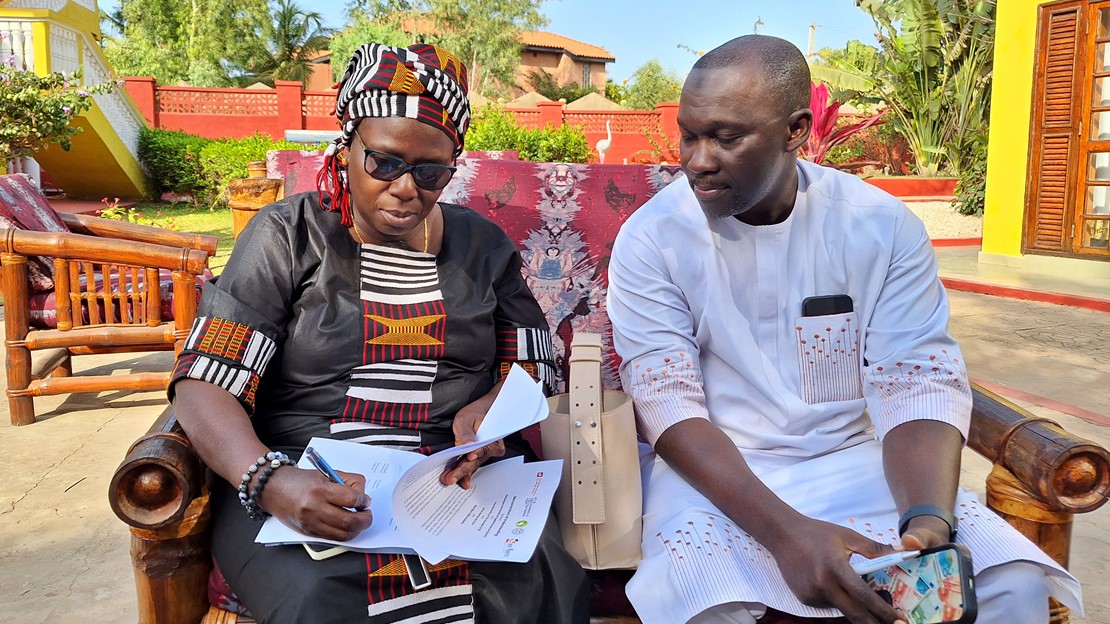
EAS is not an NGO: This is what’s in it for us
This collaboration provides students with invaluable learning experiences in a complex context that extends beyond the classroom. Working in a low-resource environment challenges them to develop creative problem-solving skills, enhancing their adaptability and ingenuity. At the same time, they gain a deeper understanding of sustainable and circular thinking by exploring how local plant compounds, plant materials and waste flows, can be used to minimize environmental impact and create eco-friendly products.
Through cross-cultural collaboration with Gambian students and experts, they develop intercultural communication skills and a global perspective on sustainability and innovation. Additionally, students engage in hands-on research and prototyping, applying design thinking, testing new materials, and creating real-world solutions tailored to community needs. Clients that have very different wants and needs than students are used to from clients in the Netherlands. Finally, they cultivate entrepreneurial and social impact skills, learning how innovation can drive social change and economic empowerment within local communities.
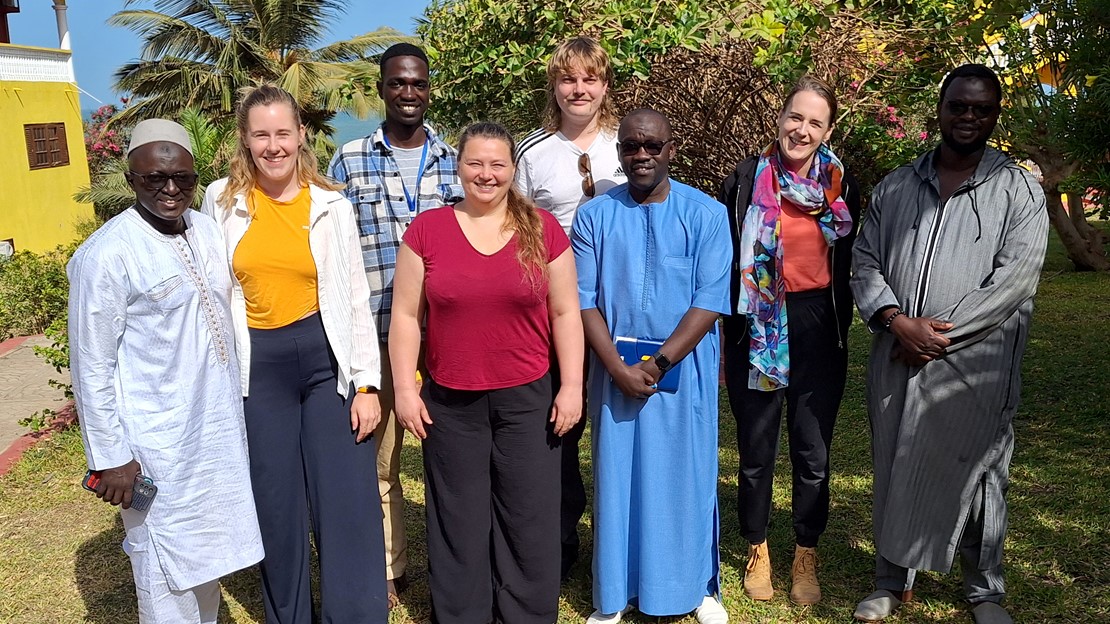
The Future: Groundbreaking Experiments
With a well-filled joint project agenda, exciting initiatives are on the horizon. Research into medicinal properties of plants compounds local to The Gambia will continue in collaboration with the School of Medicine and Allied Health Studies. Additionally, the Gaye Njorro Skills Academy is launching a small-scale laboratory for (food) safety testing, a first for local entrepreneurs in The Gambia. Further development of new materials derived from plant compounds is in progress as well as diverse solutions for micro gardening. And this is just the beginning!
In the coming months, we hope to welcome several of our partners to Rotterdam. In May students and professor Manjang from UtG’s Faculty of Medicine and Allied Health Sciences will come to Rotterdam to do research together with our students from Biology and Medical Laboratory Research. We eagerly anticipate the innovative experiments the Circular Fieldlab will bring in the near future!
